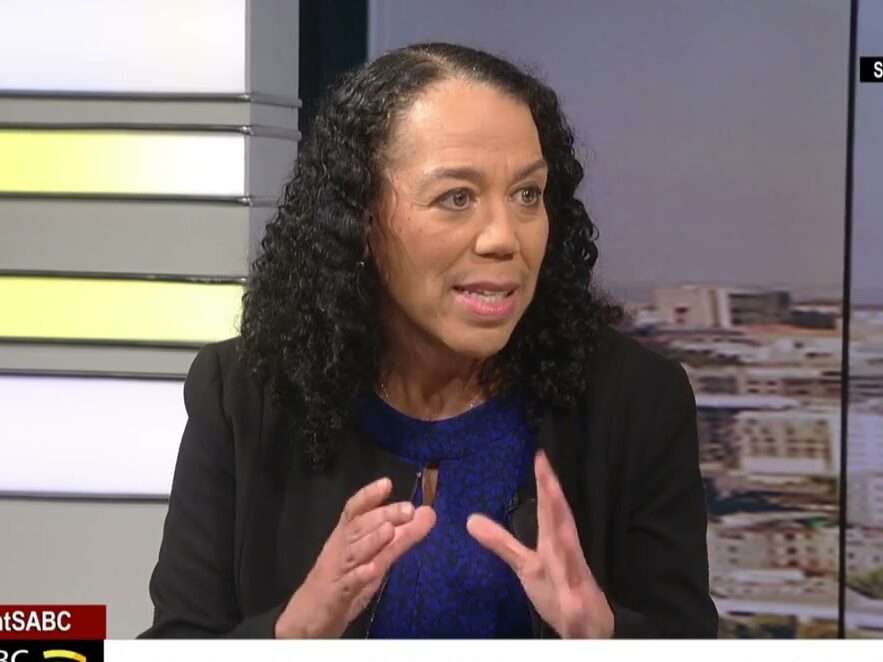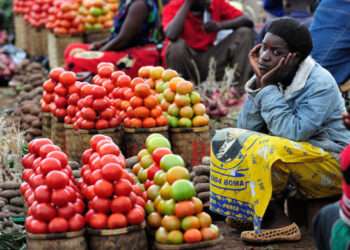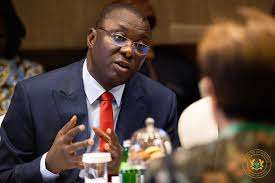The First Deputy Governor of the Bank of Ghana, Dr. Maxwell Opoku Afari, revealed that the government has successfully settled payments for all individuals who chose not to participate in the domestic debt exchange program (DDEP) last year.
He also confirmed that institutions that took part in the program have begun receiving their payments, both in cash and through other means.
Dr. Afari made these remarks on behalf of the BoG Governor, Dr. Ernest Addison during the launch event of the Commercial Paper Market hosted by the Ghana Stock Exchange.
He emphasized the Central Bank’s dedication to ensuring prompt payment processes to encourage increased investor interest and participation in such initiatives.
“So far the market has been calm, backed by some recent debt servicing by the government. On various due dates, the government has paid all cash coupons and payments in kind coupons on the domestic debt exchange bonds. The government has also paid all individuals who opted out of the domestic debt exchange exercise.”
Dr. Maxwell Opoku Afari
He added that the government has started paying institutional holders who did not participate in the domestic debt exchange program.
He said, “In the last two weeks, about GH₵200 million was paid to institutional investors. Economic activities are picking up.”
The launch of the Commercial Paper Market shows the Ghana Stock Exchange’s commitment to introducing new investment opportunities tailored for both short-term and long-term investors.
Dr. Maxwell Opoku Afari, who also serves as the Chairman of the Fixed Income Market Council, encouraged investors to capitalize on the current economic activities by increasing their investments in the private sector.
He further urged the managers of the Ghana Stock Exchange to innovate and develop new financial products that meet the evolving needs of the market.
IMF’s Optimism
Moreover, the International Monetary Fund (IMF) has expressed confidence that Ghana’s second review program will be completed, paving the way for the approval of around $360 million in funding for the country by June 2024.
This positive outlook from the IMF comes in response to Ghana’s substantial progress in reaching an agreement with its bilateral creditors regarding the nation’s debt restructuring program.
“Ghana’s process is on a very good path right now, and as you know the Ghana team was in the country recently and reached staff-level agreement with authorities on the Program,” said Catherine Pattillo, Deputy Director of the IMF’s African Department.

She emphasized the importance of Ghana reaching an agreement with its creditors on debt restructuring.
“The next step is for Ghana to reach an agreement with their creditors and that will help us to move forward to complete the board meeting in Ghana by the end of June 2024. I think that things are moving well.”
Catherine Pattillo
The IMF’s 2024 Regional Economic Outlook forecasts that Ghana’s economy will achieve a growth rate of 2.8 percent by the end of the year.
This projection aligns closely with the growth rate forecasted by the government in the 2024 Budget. Looking ahead, the IMF anticipates a growth rate of 4.4 percent for Ghana by the year 2025.
Ms. Pattillo highlighted several challenges impacting Ghana’s growth trajectory, including high inflation rates, elevated interest rates, and currency volatility shocks.
These difficulties have been attributed to the effects of the Domestic Debt Exchange Programme, underscoring the program’s impact on Ghana’s economic landscape.
“Despite these challenges, what we see is that growth has been more resilient than what we projected under the IMF Program.”
Catherine Pattillo
Ms. Pattillo clarified that the economic projections for Ghana hinge significantly on the thorough implementation of the IMF program by the government.
READ ALSO: Vim Lady Defends MzGee Over ‘Sleeping With Bosses’ Claims





















